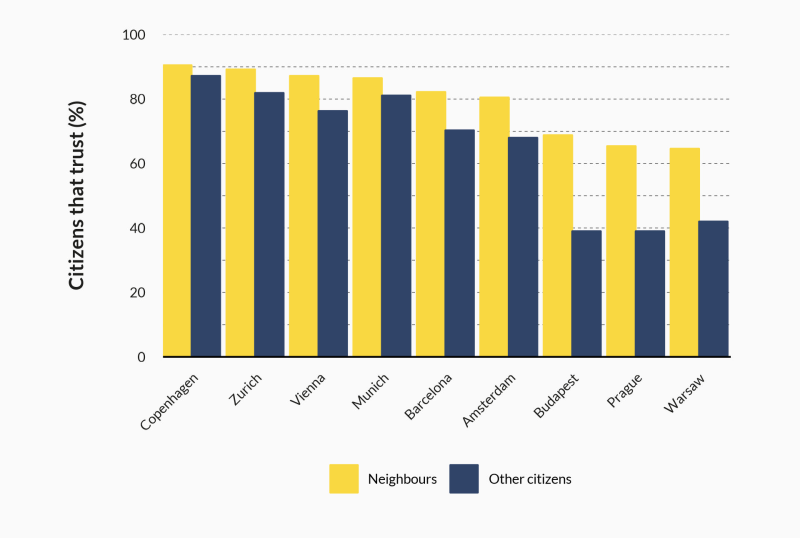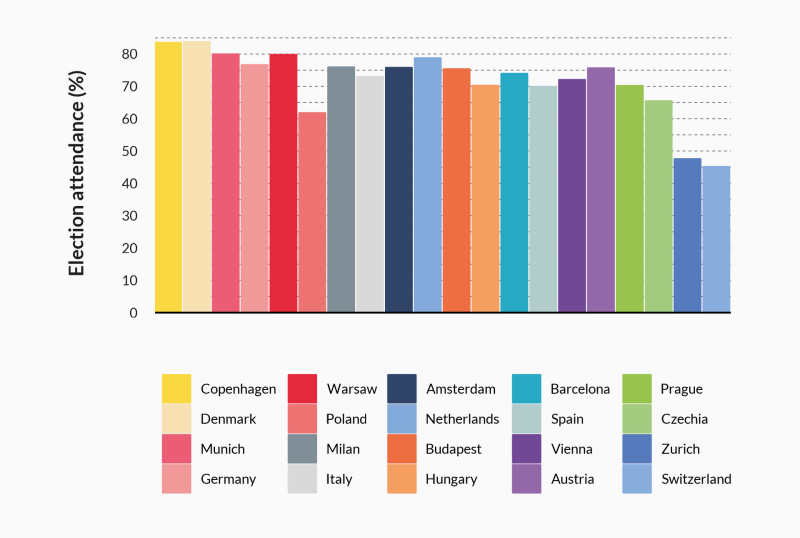A similar trend is reflected in the relatively low turnout for parliamentary elections which, among the cities surveyed, was the lowest in Prague (with the exception of Zurich)[1]. Nevertheless, it was still higher than in the rest of the Czech Republic.
[1] The low turnout in parliamentary elections in Zurich and Switzerland as a whole does not reflect a low level of political participation, but a higher-than-average frequency of elections compared to other political systems and the associated selective participation of local voters (Sciarini et al., 2016).
Chart: Election turnout in the last two national elections to the lower chamber of the parliament (%)
Year: /
Area: City territory, countries
*Source: National Statistical Offices and Radiotelevisión Española, 2022
The data for Milan and Budapest are only for the most recent election. City boundaries are defined by electoral districts corresponding to the administrative definitions of cities or regions (Munich-Bavaria and Milan-Lombardy 1).



